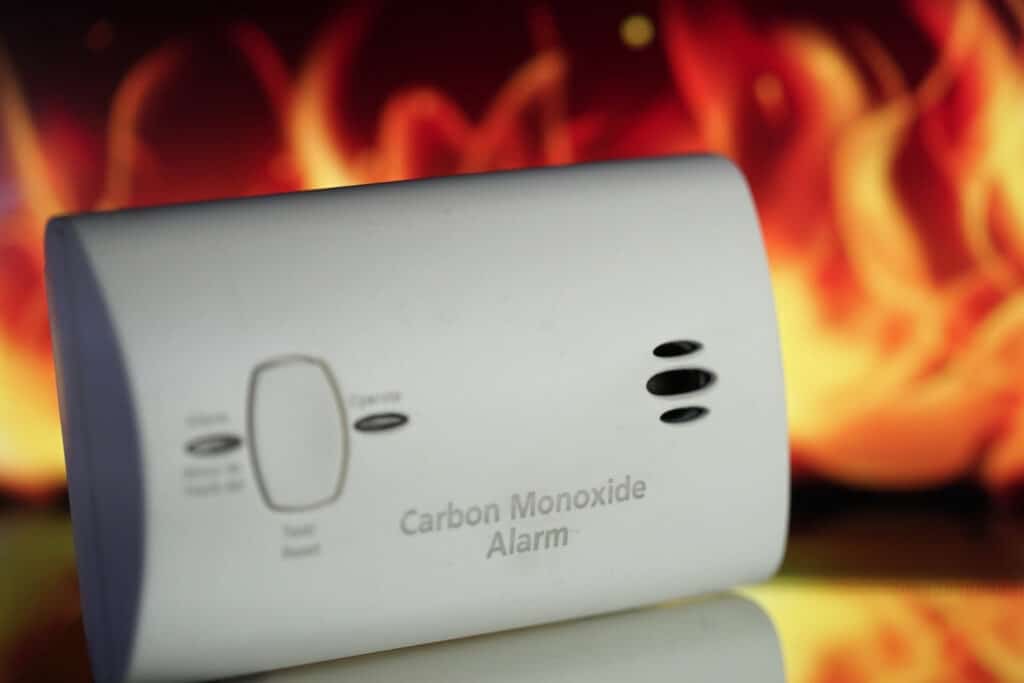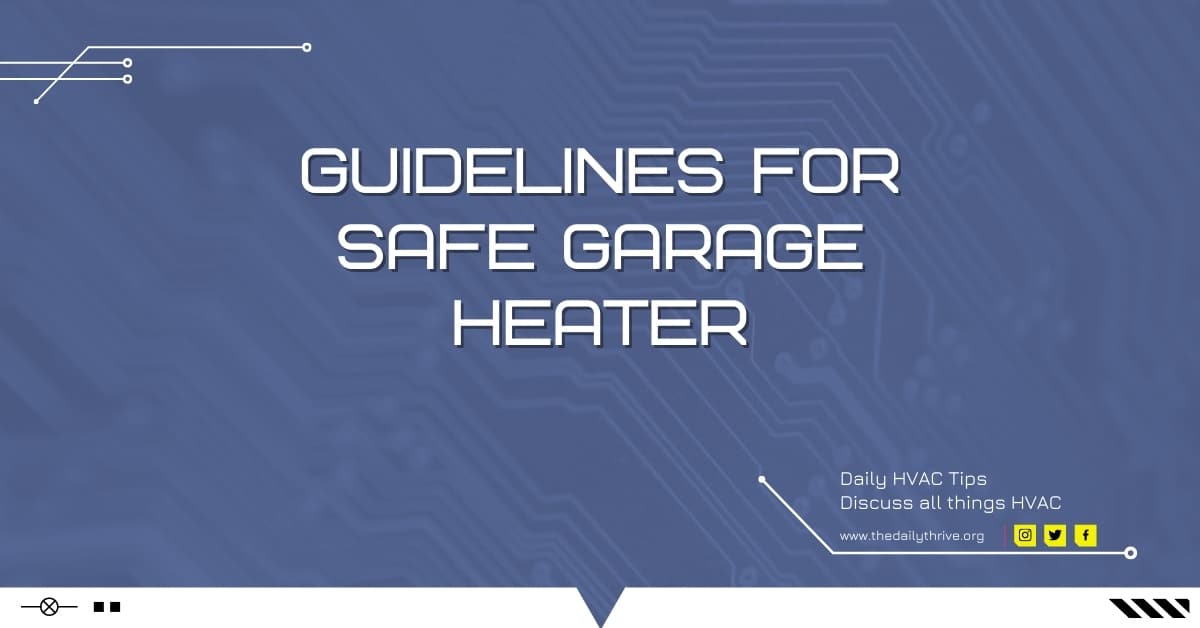We use our garage for all kinds of things. Our garage can be a workshop, a man cave, an exercise room, or a home office. If you use a garage heater to warm the space, you can extend the use of your garage through the cold winter months. But first, you need to make sure that your garage is properly set up and that the heater you choose is safe.
There are so many garage heating options to choose from. Once you’ve made a choice, it’s important to take the time to review the garage heater safety guidelines.
The number one safety tip for garage heating is to read the manual that comes with the product. The manufacturer provides guidelines for effective and safe use. Following these safe garage heater tips can prevent accidents. Also, familiarize yourself with the features of your particular model, so you know what to expect.
Almost all garage heating units include safety features. For example, many types of heating units include a tilt feature that shuts off the power in case the heater is knocked over. Others include warning lights that indicate if the unit is in danger of overheating. These important safety features will be listed in the manual and ensure worry-free use.
General Safety Tips for Safe Garage Heater
As in all heating types, there are general safety garage heater tips to be considered. Below they are listed for your benefit.
- Don’t leave a heater running when you leave. Even if you’re only planning to be gone for a short while, be sure to turn off the unit and unplug it whenever you leave the garage.
- Be sure to position the unit on a hard, stable surface to reduce the risk of it getting knocked over.
- Make sure to leave plenty of clearance around any heating unit to decrease the chance of accidentally bumping it, resulting in burns, bruises, or possible electric shock.
- Keep flammable materials away from the heater. These include flammable liquids such as paint, gasoline, and solvents. Clothing, curtains, blankets, and papers can also catch fire if stored in close proximity to space heaters.
- Supervise kids and pets. Be sure to warn them of the chance of accidental injury if they come in contact with the unit.
- Don’t block the intake or exhaust vents. This could lead to malfunctions and fires.
- Only use it for its intended purpose. Don’t try to dry shoes or clothes by placing them on the heater!
- Before attempting cleaning or maintenance, disconnect it from the power supply.
- Do not modify or repair it yourself. Take the unit to a certified technician to ensure proper operation.
Electric Gas Heater Safety Guidelines
Because of their convenience, electric garage heaters are a popular choice for most homeowners. Most portable options are electrically powered, but along with that ease of use comes a particular set of safety rules to keep in mind:
- Electric units should only be plugged into properly grounded outlets. Be sure that the voltage on the unit matches the electric service provided in your area.
- Don’t run electrical cords under rugs or mats.
- Check your unit regularly for frayed or brittle cords and plugs, along with other damage to the casing or insulation that might impact the unit’s operation.
- If you notice signs of damage to the wiring, casing, or insulation, repairs should only be performed by certified electricians. Trying to make repairs yourself can lead to electric shock or cause a malfunction in the unit that could result in damage to your home.
Gas Heater Safety Guidelines
Is a propane heater safe in a garage? Yes, propane heaters are safe when you have a proper ventilation system. They are also more affordable to operate.
Kerosene, propane, and oil-filled heaters present a particular set of safety challenges. Because they emit carbon monoxide fumes as they heat the air, it is essential that adequate ventilation be available.
A large wall or ceiling-mounted unit should be installed by a professional who can ensure that air vents are properly in place to expel the fumes. If operating a unit without built-in vents, always leave a door or window to provide proper air circulation.
Some garage heaters come with a built-in carbon monoxide detector. If your unit does not have one, consider investing in installing one yourself.

If you smell gas, turn the heater off immediately. Early signs of carbon monoxide poisoning resemble the flu, with headaches, dizziness, and nausea as the primary symptoms.
If you have been working in close proximity to any gas heater and experience any of these symptoms, turn the unit off, open a window, and get some fresh air immediately. The heater should be thoroughly inspected for damage before being used again.
Remember that the fuel for gas heaters is highly flammable, so be sure to handle it carefully. When it’s time to add fuel to the unit, make sure the heater has been turned off before you start.
Follow the instructions in the manufacturer’s manual to ensure safe operation. Refilling your gas heater is a good time to inspect the unit for any potential damage.
Special Safety Measures for Woodworkers
If you have turned your garage into your very own woodworking shop, then you should be aware of some potential risks specific to your setup. The dust and debris created by sawing and sanding can pose a dangerous threat when heaters are in use.
When this debris comes in contact with the heating element of an electric or gas heater, it can ignite and cause a fire. In addition, forced air from any heater can blow the dust and debris around, causing you to inhale unnecessary amounts of harmful material into your lungs. This can lead to long-term health problems.
A quick solution is to just turn off the garage heater when dust-raising work is in process. Be sure to clean it up thoroughly before turning the heater back on.
Following these safety guidelines will ensure you and your family can enjoy the warmth provided by a garage heater all winter long.






